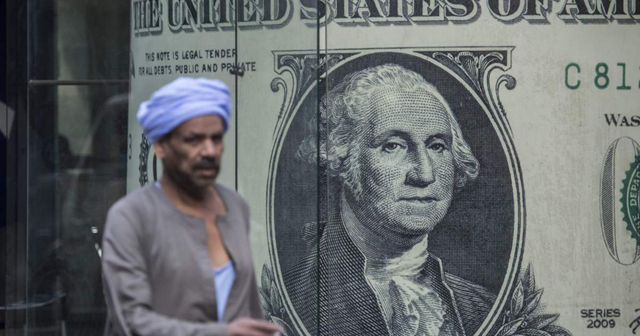
CAIRO, Feb 1, 2024 (BSS/AFP) - Egypt's economic crisis is squeezing high-street brands such as Starbucks and The Body Shop as experts ask how the Arab world's most populous nation will repay its soaring debt.
Amid a severe foreign currency crunch, the US dollar has become hard to come by as the Egyptian pound is plunging and inflation is surging at 35 percent.
Egypt's highly import-reliant economy, dominated by military-linked enterprises and with a fondness for infrastructure mega-projects, has been hit hard by a series of recent shocks.
The pandemic impacted its key tourism sector. The Ukraine war raised the cost of wheat and other imports. And recent attacks by Yemen's Huthi rebels on Red Sea shipping have slashed vital Suez Canal fees.
Remittances from overseas Egyptian workers -- the main source of foreign currency -- slumped by as much as 30 percent in July-September 2023 alone, according to Central Bank of Egypt data.
The Egyptian state, highly indebted after years of heavy borrowing, including for a new capital city in the desert east of Cairo, has struggled to service its ballooning debt.
The International Monetary Fund has stepped in with a $3 billion loan facility but demanded painful austerity measures in the country of 106 million people, two-thirds of whom live on or below the poverty line.
President Abdel-Fattah al-Sisi recently explained that the state spends $3 billion a month on commodities such as food and energy.
"We provide services to the Egyptian people in Egyptian pounds and have to pay for them in dollars," he said in a speech.
- Demand for greenbacks -
Amid the crisis, everybody wants greenbacks, and no one wants to give them away.
On the black market, the dollar is trading at 70 Egyptian pounds, more than double the official exchange rate of 31.
Most of the time, banks simply refuse to give dollars to their customers.
Bank clients travelling abroad are only allowed to withdraw or transfer a maximum of $100 from their Egyptian accounts.
People with only a debit card, rather than a credit card, cannot pay online at all to an overseas account.
This applies even to a Netflix subscription, currently offered at a discount of three dollars per month in Egypt.
Imported big-ticket purchases, such as a new car, are simply beyond the means of most middle-class families.
Investors "who depend on dollars, as well as imported goods, will not be able to continue", said economist Mohammed Fouad.
Kuwaiti retailer Alshaya, which owns the Egypt franchise rights to a range of well-known brands, said it was having to close retail outlets of Starbucks, The Body Shop and Debenhams as a consequence.
- Exploding external debt -
Egypt's external debt has exploded to $164.7 billion. The cost of servicing that debt this year will be $42 billion.
JP Morgan recently announced that, from January 31, it will exclude Egypt from its index of government bonds of emerging economies "due to issues related to reported difficulties in essential foreign currency convertibility by concerned investors".
Ratings agency Moody's this month lowered the outlook on Egyptian government bonds to "negative" from "stable" in the face of foreign currency shortages, weak consumer confidence and borrowers increasingly unable to repay their loans.
James Swanston, emerging markets economist at Capital Economics, said that Egypt was "heading towards a fork in the road".
One path could be a shift toward economic orthodoxy "which includes adopting a fully flexible exchange rate and keeping a tight grip on fiscal policy", he said.
However, he warned, "if policymakers dither and crucially if they don't let the pound float, it could get messier".
- 'Reassuring investors' -
Swanston said he expected a two-step solution -- "an initial devaluation of the pound to 40 per dollar, and then the adoption of a flexible exchange rate regime", which Cairo has promised the IMF for years but so far failed to implement.
Economist Fouad said that "in the immediate term, the government has an interest in stability, because it is the biggest debtor in dollars and would therefore be hit hardest by a rise" in the value of the greenback.
"In the short term, I'm sure that Egypt will repay its debts," he said. "But if the current situation persists, with debt growing while economic growth is unable to compensate, then we'd need to be worried."
Capital Economics' Swanston said that "the solution in the short term is reaching an agreement with the IMF for its enhanced Extended Fund Facility, which seems increasingly likely".
"This will provide crucial financing and also assure investors that Egypt is safer, which would lead to investments into Egypt's bond market and also help to reduce interest rates on Egypt's debt."